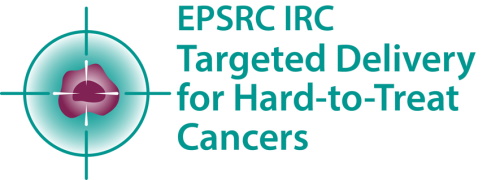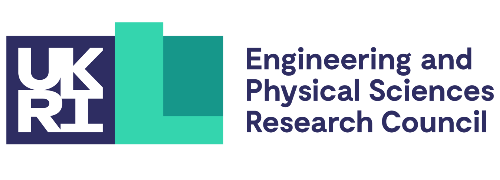
Submitted by L. Millard on Tue, 04/10/2022 - 10:25
The hour-long podcast shines a light on the interdisciplinary structure of the IRC programme that spans five founding universities and brings together clinicians, scientists and engineers to develop novel technologies to target three hard-to-treat cancers – glioblastoma, pancreatic cancer and mesothelioma.
The newly published episode of the Joining the Dots podcast features IRC Clinical Lead, Professor of Neurosurgery and lead for the Brain Cancer Programme, University of Birmingham, Professor Colin Watts and IRC Investigator and Associate Professor in the Science and Technology of Manufacturing, University of Cambridge, Professor Ronan Daly in conversation with host Paula Rogers-Brown, Business Community Manager at Connect: Health Tech.
The future of manufacturing will involve technologies much like those being developed by the IRC programme which require an understanding of the details of biology, chemistry and physics combined with the ability to make sure the technologies can be produced in an affordable and safe way so they can reach the people who need them Professor Ronan Daly, IRC Investigator
Conversation touches upon career journeys, the challenges to treating the three cancers in the sight of the IRC, the stand-out strengths and challenges of multidisciplinary collaboration, the benefits of embedding manufacturing in the development of new technologies and the valuable insights and research infrastructure that the IRC is forging. Connect: Health Tech is a Cambridge University Enterprise Zone (UEZ) that builds an interdisciplinary bridge between two Cambridge research hubs — the West science and technology hub anchored at the Maxwell Centre and South biomedical hub anchored at the Milner Therapeutics Institute. The network publishes regular Joining the Dots podcasts on its website at connecthealthtech.mn.co/feed.
This episode, titled ‘Targeting hard-to-treat cancers with EPSRC's Interdisciplinary Research Collaboration’, explains the way the IRC works and discusses its objectives and progress to date. Professor Watts acknowledges the importance of clinicians supporting scientists in the journey of development required to make the translational jump from laboratory to clinic. He explains the necessity for an array of skills and expertise to develop new approaches to improving patient outcomes for hard-to-treat cancers: “These cancers are often advanced by the time they present clinically and have evolved in complexity and developed barriers and resistance to treatments. We need multiple skillsets brought to this complexity, and increasingly we are realising a systems approach is necessary. Multiple treatments are required based on an understanding of how the disease is changing over time and this requires expertise across a number of scientific areas. Only by working in a multidisciplinary way can we meet the complexity of the challenge.”
Reflecting on the role of manufacturing in the IRC programme’s development of novel technologies, including hydrogels, implantable devices and high-capacity vehicles, and the wider research landscape, Professor Daly said: “The future of manufacturing will involve technologies much like those being developed by the IRC programme which require an understanding of the details of biology, chemistry and physics combined with the ability to make sure the technologies can be produced in an affordable and safe way so they can reach the people who need them.”
Describing the aims of the IRC programme, Professor Daly reflected on three main impacts: “The main one is making these three cancers less hard to treat. It is the principal driver because this research is for real people living with cancer. Others include paving the way for future projects by exploring working with a multidisciplinary approach and embedding manufacturing to enable us to identify the questions we need to ask at the early stage of the development of the technologies.”
• Join the Connect: Health Tech online community (free to join) to access resources including the Joining the Dots podcast at https://connecthealthtech.mn.co/.
• Listen to the Connect: Health Tech Joining the Dots podcast ‘Targeting hard-to-treat cancers with EPSRC's Interdisciplinary Research Collaboration’ at https://connecthealthtech.mn.co/posts/targeting-hard-to-treat-cancers-with-epsrcs-interdisciplinary-research-collaboration-podcast


